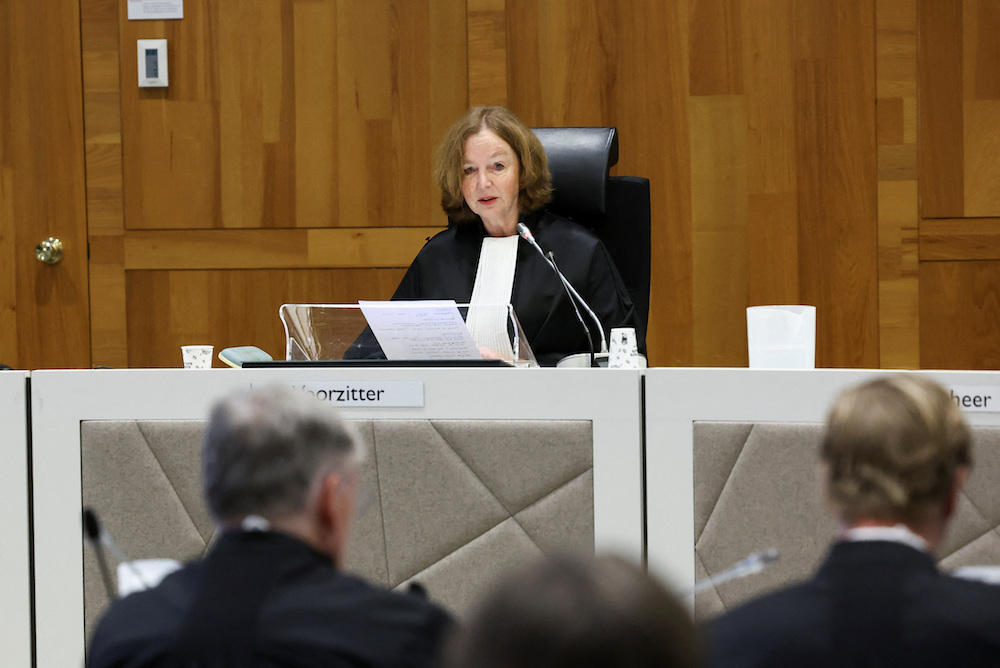Legal experts have said that court ruling in favour of Shell does not spell the end of climate litigation against companies.
The oil and gas company celebrated on Tuesday when it won an appeal against a landmark climate judgment by a Dutch court. In 2021 a lower court ruled that Shell must cut its global carbon emissions by 45% by the end of 2030 compared with 2019 levels. It was the first such ruling against a company in the world, and led to a growing trend of lawsuits against corporations.
However, the Dutch court of appeal ruled that, while Shell did have a “special responsibility” to cut its emissions as a major oil company, this would not be achieved by imposing a specific legal goal. Milieudefensie, the NGO that brought the claim, was disappointed with the ruling because it rejected its key demand.
However, the lawyer Roger Cox said he could see a number of important points to build on in the NGO’s legal battle against large polluters. “The court makes it abundantly clear that not only countries, but also companies, have a responsibility to reduce their emissions in line with the Paris climate agreement,” said Cox.
Thom Wetzer, an associate professor of law and finance at the University of Oxford, believes this leaves the door “wide open” for future litigation against corporations in the Netherlands and beyond.
Read also: Figures show almost half of Valencia’s flood victims were aged over 70
The appeal court found no solid basis on which to order Shell to cut its emissions by 45% by the end of the decade. Shell successfully argued that the target was based on a global average and did not take into account the fact that the company did not sell the most polluting fossil fuel, coal. Nor was the court persuaded by Milieudefensie’s suggestions of more tailored emissions reductions for oil and gas.
But the court agreed in principle that it was able to order companies to meet absolute emission reductions.
Joana Setzer, an associate professor at the Grantham Research Institute on Climate Change, said this laid the basis for future claims, particularly once the EU set clear pathways for emission reductions in particular sectors.
Noah Walker-Crawford, a research fellow at Grantham, said he believed scientists had an important role in this. “Research in this field is advancing rapidly to bridge the gap between global emissions reduction goals and specific actionable targets.”
The court stressed that business environmental rules were getting tougher. Both the EU’s corporate sustainability reporting directive and its later corporate sustainability due diligence directive (CSDDD), which was finalised earlier this year and takes effect from 2027, impose climate-related obligations on companies such as Shell.
Story was adapted from the Guardian.
